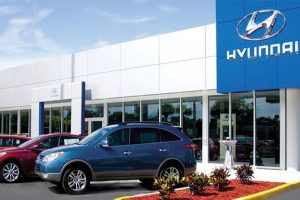By Richard Sox, Esq.
Now that it appears that we are reaching some semblance of the new normal, let’s look at some of the critical legal issues facing franchised motor vehicle dealers over the remainder of 2020.
PPP Loan Forgiveness
After months of revisions and clarifications to the Paycheck Protection Program rules for eligibility and forgiveness of loans under the Program, we now have a much clearer picture. Dealers who received loans of less than $2,000,000 (when factoring in applicable affiliation rules) can now rest easy that the Small Business Administration does not plan to audit you to determine if you were eligible for the loan and, unless there is some concern with your loan forgiveness application, does not plan to audit your use and forgiveness of loan proceeds.
For dealers that received loans of greater than $2,000,000, it would be prudent to coordinate with your accountant and legal counsel to best position your business for the expected SBA audit. Among other things, this should involve adequately documenting your need for the loan at the time of the PPP loan application based upon a lack of easy and quick access to capital markets as well as the economic uncertainties faced at that time.
The SBA has recently created the portal by which the PPP lenders can submit approval (or denials) of forgiveness applications. Although the vast majority of banks have said they are not ready to accept forgiveness applications from businesses yet, dealers should be working with their accountants and legal counsel to complete the forgiveness application and gather the required supporting documents which are required to be sent with the forgiveness application.
Changes to Vehicle Distribution System for Electric Vehicles
Over the past several months there has been a wave of electric vehicle agreements sent to dealers from their manufacturers. These include the Battery Electric Vehicle Agreement from Volkswagen and Audi as well as Electric Vehicle Participation Agreements from the Chevrolet, Buick and GMC divisions of General Motors. More of these agreements are expected from other manufacturers as they get closer to the launch of their all electric vehicles.
Dealers should pay close attention to the terms of these EV agreements. Unlike with past new model launches, the OEMs seem to want to obtain a commitment from dealers in advance of the vehicle launch that the dealership will meet a long list of requirements to sell and service the EVs, to include any requirements which may be added in the future. If the dealer does not comply with these requirements, the dealer agrees within the EV agreement that it will not be eligible to receive EVs for sale. In our view, this is contrary to the process intended by Florida law. Florida motor vehicle franchise laws provide that an OEM must provide a fair number and mix of all models to dealers with a franchise for that vehicle brand. Florida law provides further than a dealer must comply with “reasonable” sales and service requirements associated with the vehicles. The EV Agreements appear to attempt to take away a dealer’s right to argue that a sale or service requirement associated with an EV model is unreasonable.
Some of the OEMs like Volvo, Volkswagen and Audi, have instituted a big change in the way customers order vehicles. Historically, as the retail agent in the chain of commerce, the dealer is the party that interacts with the customer, submits the customer’s vehicle order and handles the entire transaction with the customer. This is why dealers are asked to invest in such large and plush facilities, to have a certain amount of sales offices, floor space, etc. – all to attract customers to the dealership to purchase a vehicle. Now, as if there is something fundamentally different about vehicles powered by an electric motor as versus an internal combustion engine, these OEMs have decided that customers must order their vehicles through an online vendor set up by the OEM. Deposits are placed through the online vendor and the customer is asked to choose the dealership at which he or she would like to complete the transaction and pick up the vehicle. This process places more separation between the retail dealer and the customer and brings the customer closer to viewing the OEM as the party with which they are dealing.
What will come next, a slate of finance and insurance options offered by the OEM at the time a vehicle is ordered? Will OEMs set a fixed price for vehicles in the future so that no negotiations over price between the customer and dealer will be necessary (i.e. Tesla)? Is the OEM’s aim to ultimately turn dealers into glorified vehicle delivery and service centers? This is certainly not what dealers have bargained for in entering into a franchise relationship and making huge investments to be the retail seller of the OEMs products.
Florida law does prevent OEMs from selling a motor vehicle to any retail consumer except through a franchised motor vehicle dealer. “Selling” is defined as “any transaction where the title of motor vehicle is transferred to a retail consumer.” Arguably, an OEM receiving vehicle orders and deposits directly from the retail consumer is part of the “transaction” which leads to the transfer of title to the motor vehicle to the consumer.
Dealers must be on heightened alert for further moves by their OEM to insert themselves into the retail customer relationship which is fundamental to the franchised motor vehicle dealer’s business.
Changes to Dealer Sales and Service Agreements
From time to time, the OEMs will issue new Dealer Sales and Service Agreements to their dealers. Some, like General Motors, have all of their Dealer Agreements reflect the same expiration date which allows GM to issue a new Agreement to all of their dealers at one time while others will issue a new Agreement sometime prior to the individual dealer’s Sales and Service Agreement’s expiration date. GM recently issued its proposed new Dealer Agreement to become effective November 1, 2020, for a five year term.
Florida law allows dealers to protest any adverse change to their franchise, which includes changes to the Dealer Sales and Service, a proposed new EV agreement or the like. Such a protest will stay the enforcement of the adverse change until such time as the protest is resolved. We encourage dealers to study the terms of any new agreement provided by the OEM and, with regard to new Dealer Sales and Service Agreements, to closely study your individual dealership addendum (ownership, management, assigned territory, facility, working capital, etc.).
Once a new Agreement and dealership-specific addenda are agreed to by the dealership, it is that much more difficult to argue against those terms later. It is much more effective to challenge adverse changes and insist on correcting inaccurate information before signing off on the new Agreement. Any adverse change or incorrect information listed in the individual dealership addendum should be addressed with your legal counsel and ultimately with the OEM.
Vehicle Allocation and Sales Performance
With the supply line for new vehicle assembly parts continuing to be strained due to the Coronavirus pandemic across the world, the supply of new vehicles to dealers has dwindled. At the onset of the pandemic, dealers were concerned about having too much vehicle inventory and now dealers cannot obtain enough of the most popular models to meet customer demand.
As mentioned above, in Florida dealers have a right to a fair and adequate number and mix of new vehicles from their OEMs. As we all know, however, the manufacturer’s allocation systems are not always fair and can be easily manipulated. As but one example, most OEMs have a discretionary pool of vehicles which can be distributed by regional personnel as needed. This pool of vehicles is outside of the automated allocation ordering system. Importantly, all it takes is one good boost of vehicles from the discretionary pool for a dealer to get ahead of other same line-make dealers for future vehicle allocation. This is because the vehicles provided from the discretionary pool still count toward the “vehicles sold” component within the turn and earn/balanced day supply calculation. Almost all manufacturers allocate vehicles based upon a calculation which includes historic sales and expected future sales. The more vehicles you sell, the greater both the historic sales number and the expected future sales number. This will result in a higher allocation of vehicles through the automated system.
It is a best practice for dealers to continually correspond in writing with the OEM zone or regional office regarding your specific vehicle inventory needs and requests for discretionary vehicles. This correspondence may cause the OEM field personnel enough discomfort to provide the complaining dealer with needed vehicle inventory. At the very least, these communications will document the OEMs failure to provide an adequate quantity and mix of new vehicles and enable you to enforce your rights under Florida law if you choose to do so.
A lack of adequate product can, in turn, lead to the appearance of poor sales performance. It is a best practice for dealers to respond to any negative sales performance reports from the OEM in writing by emphasizing the need for additional product. Dealers should document the number of customers who ask about a vehicle which is not available in your inventory and who ultimately go to a competing same line-make dealer to find the vehicle in stock. In these circumstances, the OEM should be reminded that Florida law prohibits the use of any sales performance measurement which is unfair, unreasonable, arbitrary and inequitable.
Richard Sox is a shareholder with Bass Sox Mercer law firm’s Tallahassee office. The Firm is a leading advocate for motor vehicle dealers and specializes in providing a full range of legal services to dealers and their associations including representation in franchise disputes with the manufacturer, mergers and acquisitions as well consumer and employment matters. Mr. Sox can be reached at rsox@dealerlawyer.com or (850) 878-6404.
This story appears in Issue 3 2019-2020 of Accelerate Magazine.









